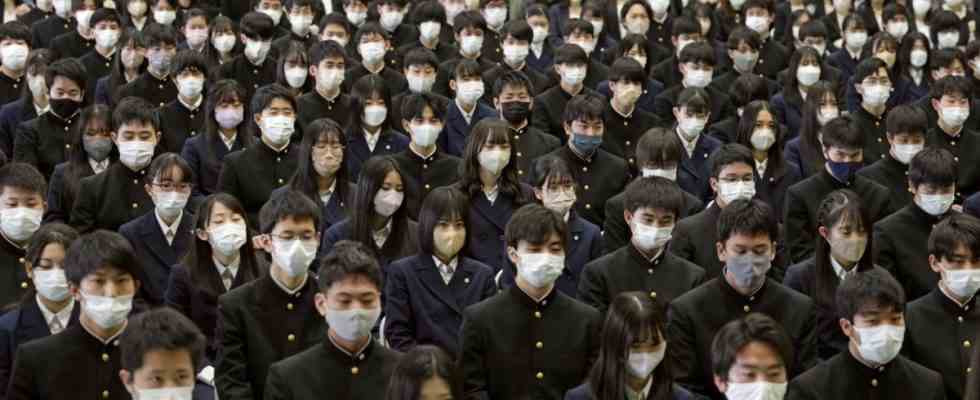The hair style regulations of the state high school in Himeji, Hyogo Prefecture, Japan prohibit dyeing, bleaching, blow-drying. They also state that a haircut should be “not trendy, but clean and appropriate for high school students.” According to research by the newspaper, von Zöpfen says so mainichi nothing. Nevertheless, there was the scandal that is now making the school headlines as an example of Japanese intolerance. An eighteen-year-old son of a Japanese mother and a black American father was not allowed to attend his graduation ceremony because he showed up with cornrows, a traditional, clean braided hairstyle from African culture that is quite appropriate for young people. A representative from the school stated that cornrows are “different than what we have been taught”.
School rules have been an issue in Japan for years. Some of them are so strict and absurd that they border on deprivation of liberty and deny the value of diversity. The fact that the students should have their hair cut properly and wear it in Japanese black is just one facet of the irritating educational standards. Some schools tell youngsters what color their underwear should be and what shape their eyebrows should be. Among other things, they forbid them to wear cardigans even when it is cold, in rarer cases sunscreen, lip balm, romantic relationships.
The so-called black rules probably started in the 1980s. A wave of violence with bullying and property damage burdened Japan’s schools at the time. Their authorities wanted to restore order with more severity and implemented the plan with Japanese thoroughness. The exaggerations must then have happened that not only put pressure on the students, but also on those who have to implement the rules. Some teachers find it difficult to explain because they themselves do not understand the meaning of a ban on blow-dried hair or cardigans.
In Japan, the school board decides the rules, so it’s not that strict everywhere. There is also a trend towards relaxation. In 2017, an 18-year-old woman sued Osaka Prefecture after having to dye her naturally brown hair black. Since then, lawyers and advocacy groups have achieved a lot. Various prefectures have long been urging their schools to rethink. For example, they should no longer demand natural hair certificates, with which blondes or curly haired people have to prove that they are not intentionally violating the requirement for a uniform hairstyle.
But the problem of the absurd, sometimes xenophobic rules has not yet been resolved, as the example of Himeji shows. And where there is improvement, there are sometimes controversial exaggerations in the other direction. mainichi reported in December about an educational institution in Tokyo that resolved the dispute over unworldly rules by abolishing the obligations altogether. Apparently, you don’t even have to do your homework at Kojimachi Middle School anymore.

